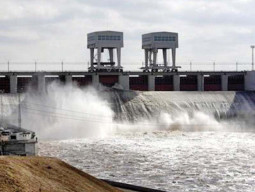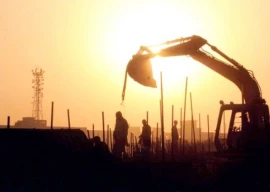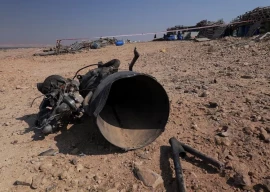HARIPUR: Residents of different villages in Bir union council have been facing a shortage of water for over a year. Authorities have been accused of being indifferent about the basic utility’s provision.
A local, Malik Rafiq, told the media on Monday that the water supply scheme was constructed in Karam village about a decade ago at a cost of Rs9 million and the supply lines were extended to Guraki, Bhatt, Banda Mughlan, Traipi and some other neighbouring villages.

However, due to reasons unknown, water is not being supplied to the population of over 20,000 people on a regular basis for the past one year. He lamented that despite a year passing by, the government is yet to make the facility operational.
“Supply lines are damaged at several places and even valves are missing. The repair staff is drawing salaries without doing anything,” an activist from Karam village, Ali Rehman, told The Express Tribune. He added two tanks were constructed to ensure uninterrupted water supply, but the taps have remained dry.
Rahman claimed consumers were still paying their bills despite not getting water. He added that due to the shortage, villagers—especially women—are compelled to fetch water from springs and tube wells from far flung areas. “Whenever we approach the repairmen, they come up with justification — broken lines, lack of funds and low voltage,” he complained.

Another local, Malik Munsif, said the Pakistan Tehreek-e-Insaf (PTI) government has been making tall claims of improving the living standards of the people of Khyber-Pakhtunkhwa (K-P), but has failed to even ensure a continuous supply of potable water to rural areas. He added that since people rely on natural springs and wells for water they are vulnerable to seasonal diseases.
Munsif said despite repeated complaints neither the sub-divisional officer nor the public health engineering department executive engineer paid heed.
The sub-divisional officer was not available for comments, but an official of the public health engineering department attributed the water shortage to electricity supply inadequacies, claiming supply lines are damaged or stolen at several places. He said tenders for new transformers and supply lines have already been sent to higher authorities for approval.
Published in The Express Tribune, October 15th, 2014.








































COMMENTS
Comments are moderated and generally will be posted if they are on-topic and not abusive.
For more information, please see our Comments FAQ